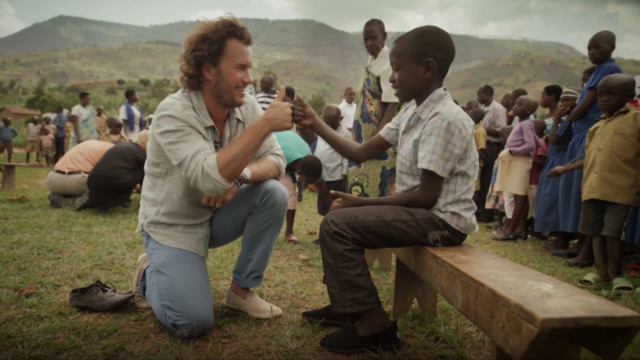Who is the founder of TOMS – the person behind the idea of one-for-one? Surprisingly, his name isn’t Tom, it’s Blake Mycoskie. On this week’s episode of Full Frame, Mycoskie told Mike Walter a few stories about his extraordinary experiences with TOMS and explained how entrepreneurs can change the world by using business as a force for good.

Blake Mycoskie: The power of one-for-one
Who is the founder of TOMS – the person behind the idea of one-for-one? Surprisingly, his name isn’t Tom, it’s Blake Mycoskie. On this week’s episode of Full Frame, Mycoskie told Mike Walter a few stories about his extraordinary experiences with TOMS and explained how entrepreneurs can change the world by using business as a force for good.When he travelled to a poverty-stricken village in Argentina, Mycoskie noticed the hardships children faced growing up without shoes.
“I learned that many of these children were not allowed to go to school, because they didn’t have shoes,” Mycoskie said. “If you think about a child that’s living in poverty, their chances of pulling themselves out of it, is tied to their education. And here, they were being denied an education because the uniform required shoes – and that just didn’t seem right to me.”
Mycoskie came up with a simple, but revolutionary, solution. He created TOMS Shoes, originally named Shoes for Tomorrow, a for-profit business that could provide shoes to children in need without relying on charitable donations.
Mycoskie said he doesn’t believe businesses have to sacrifice profit to “do good.”
“I don’t think you have to separate the compassion part from the competitive business part. I’m very proud that we make profit,” Mycoskie said.
Since he started TOMS in his apartment in 2006, Mycoskie has witnessed the company’s remarkable evolution.
As Chief Shoe Giver, Mycoskie has not only made an impact on developing communities by supplying much-needed product aid, but he has also provided people in those communities with something even more invaluable – jobs.
“Over the last three years, we’ve been working very diligently in this. We started manufacturing in India, we’ve started manufacturing in Kenya, and we also now have the only footwear manufacturing plant in Haiti. And the thing about that is, is now, we’re able to not only provide aid in these areas that it’s very much needed, but we are also creating jobs in these communities, as well,” Mycoskie said.
By the end of 2015, one-third of TOMS shoes will be made in the communities that they are given in.
Follow Blake Mycoskie on Twitter @BlakeMycoskie
 CGTN America
CGTN America

